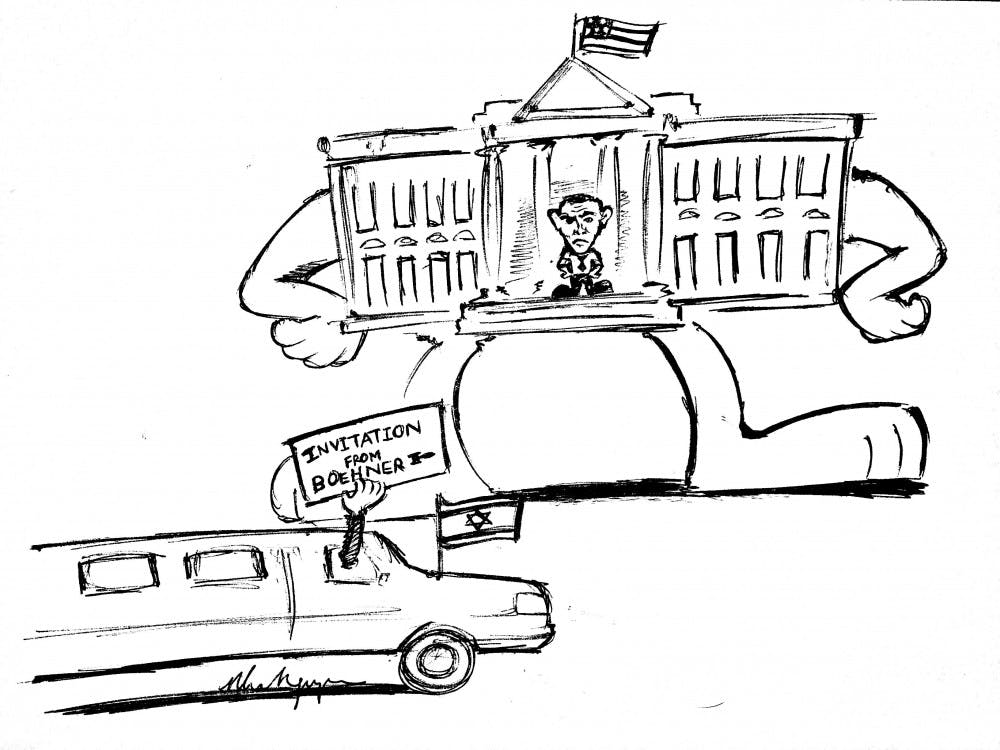Among the sweeping domestic policy proposals announced at the State of the Union address Jan. 20, one foreign policy issue, Iran, managed to fly a bit under the radar.
For about 12 hours.
With Secretary of State John Kerry, a group of European governments and China deep in negotiations regarding Iran’s nuclear program, the president asked Congress not to impede progress with a new wave of sanctions.
A few hours later, Speaker of the House John Boehner announced he was inviting Prime Minister of Israel Benjamin Netanyahu to speak to a joint session of Congress without the approval of the White House. The prime minister is in the midst of a tough challenge by Israeli hard-liners and is sure to try to score points by calling for a tougher approach ?toward Iran.
The New York Times reported that, despite President Obama’s veto warning, Boehner “told a private meeting of GOP lawmakers that Congress would proceed on further penalties against Iran.”
To fully understand the danger of such a decision, we must first understand the global context under which the Obama administration and its European colleagues are ?negotiating.
Last Wednesday, a group of foreign ministers representing Germany, the United Kingdom, France and the European Union wrote a piece featured in the Washington Post, preaching patience for the American electorate and pleading for restraint from Congress.
These diplomats and the U.S. State Department see current Iran President Hassan Rouhani as the best chance the international community has to strike a deal.
Rouhani has not been shy in his openness to cooperate with the West and has boldly confronted Iranian hard-liners — a risky political gamble on his part.
This provides Western governments a legitimate political opening, albeit a narrow one, to achieve substantial progress with Iran. Evidence of this opportunity is apparent in the interim nuclear deal struck with Rouhani in November 2013, which put an end to Iranian nuclear enrichment entirely.
Any hope of international reconciliation with Iran lies with these ?current talks.
However, as with any negotiation of this magnitude, talks are incredibly delicate and will inevitably require significant sacrifice by both sides. It is the latter of which Boehner and his supporters, deep in the delusion of American exceptionalism abroad, see as particularly ?concerning.
To many in Congress, including some Democrats, sanctions are more political than pragmatic. What they don’t understand, or choose to ignore, are the political ?realities of today’s global ?environment.
Further sanctions, a harsher tone from Israel or exploitation of recent events in Argentina give Iran ?incentive to back out of any possible deal and save whatever face it can with its citizens.
The Editorial Board not only stands behind a potential veto by President Obama, but also urges Congress to refrain from needlessly asserting itself into such delicate ?negotiations.
The Editorial Board understands Speaker Boehner’s wish to reaffirm his power after the president’s bold steps in recent months, but threatening ?nuclear talks in order to fulfill this wish is irresponsible and ?dangerous.




